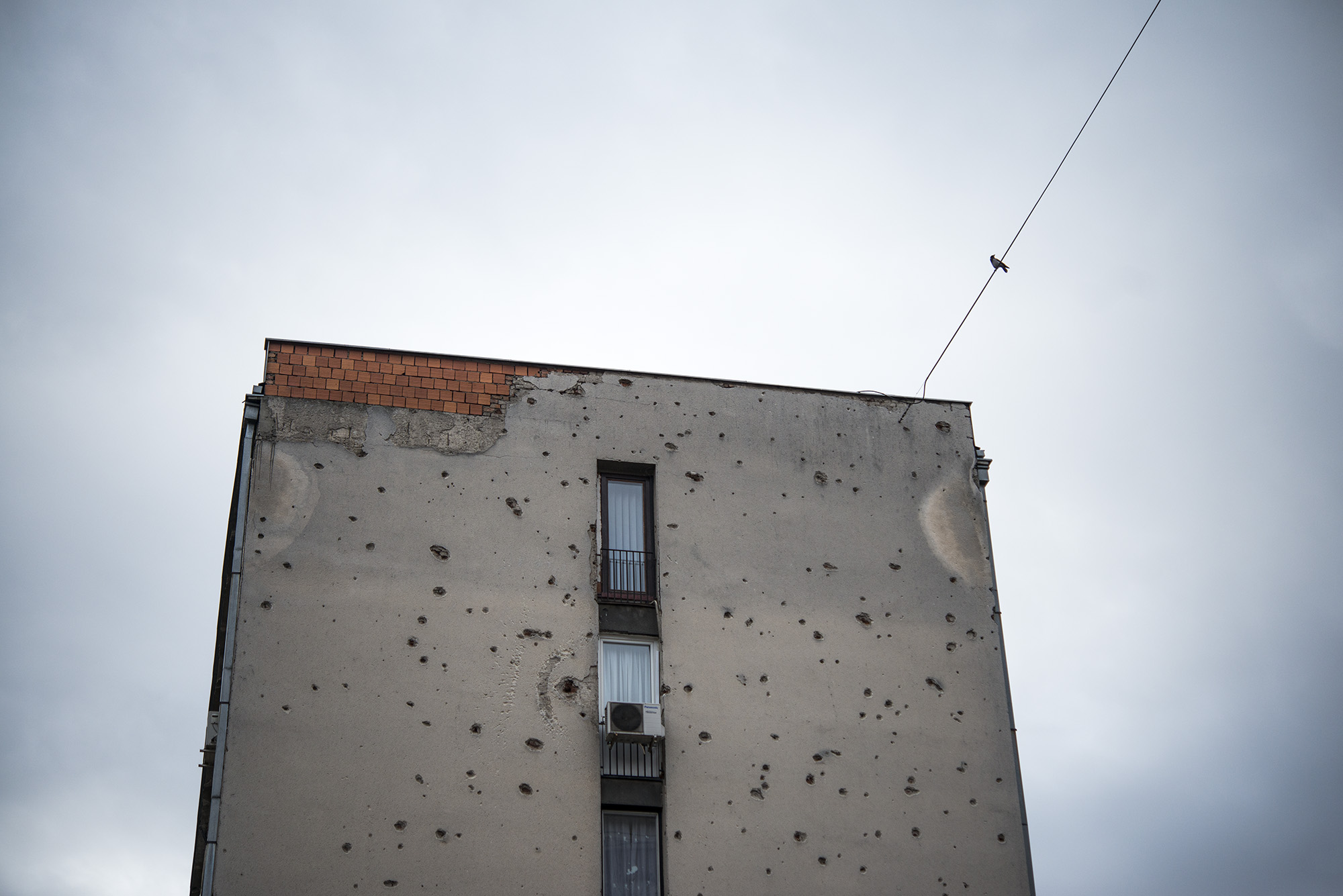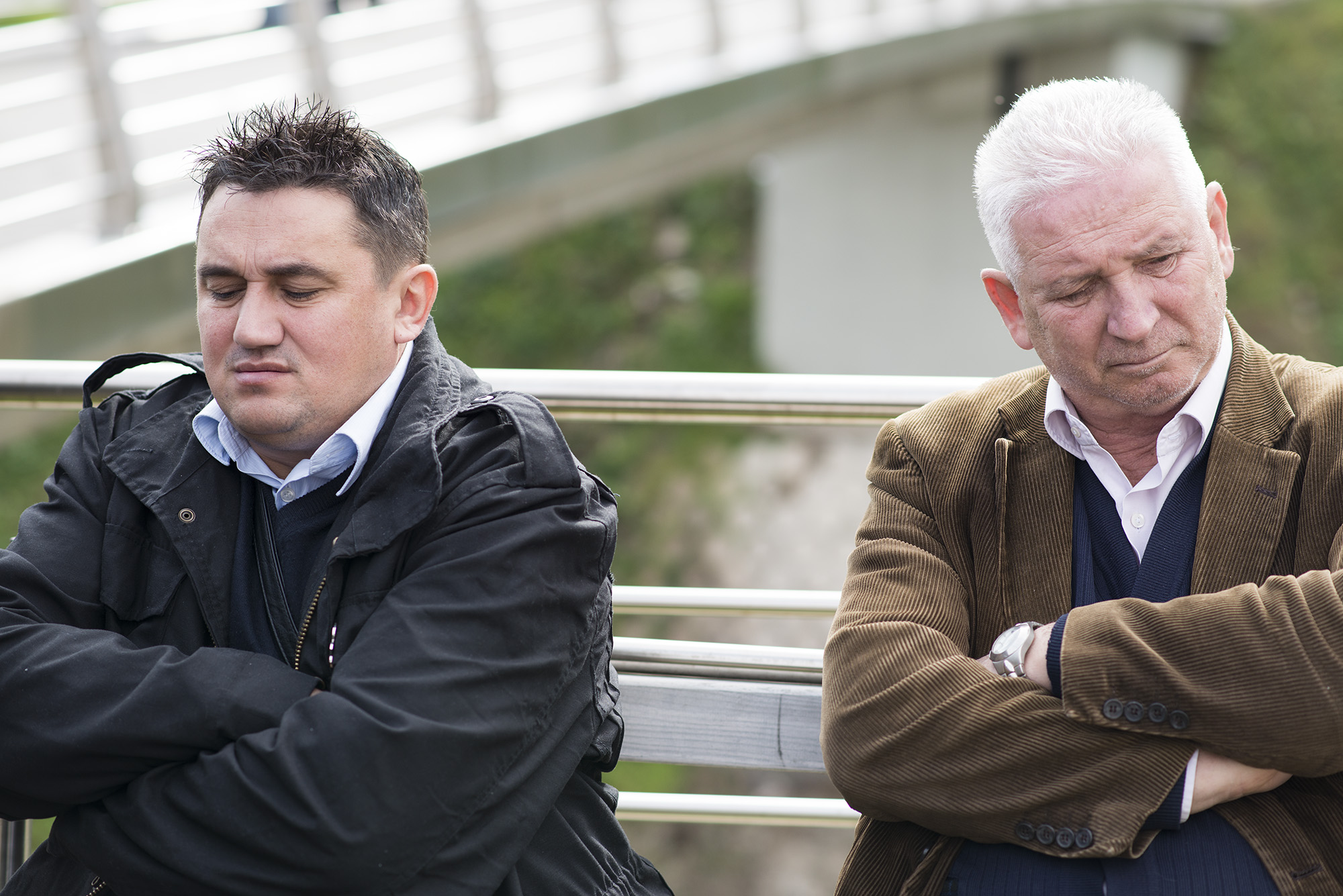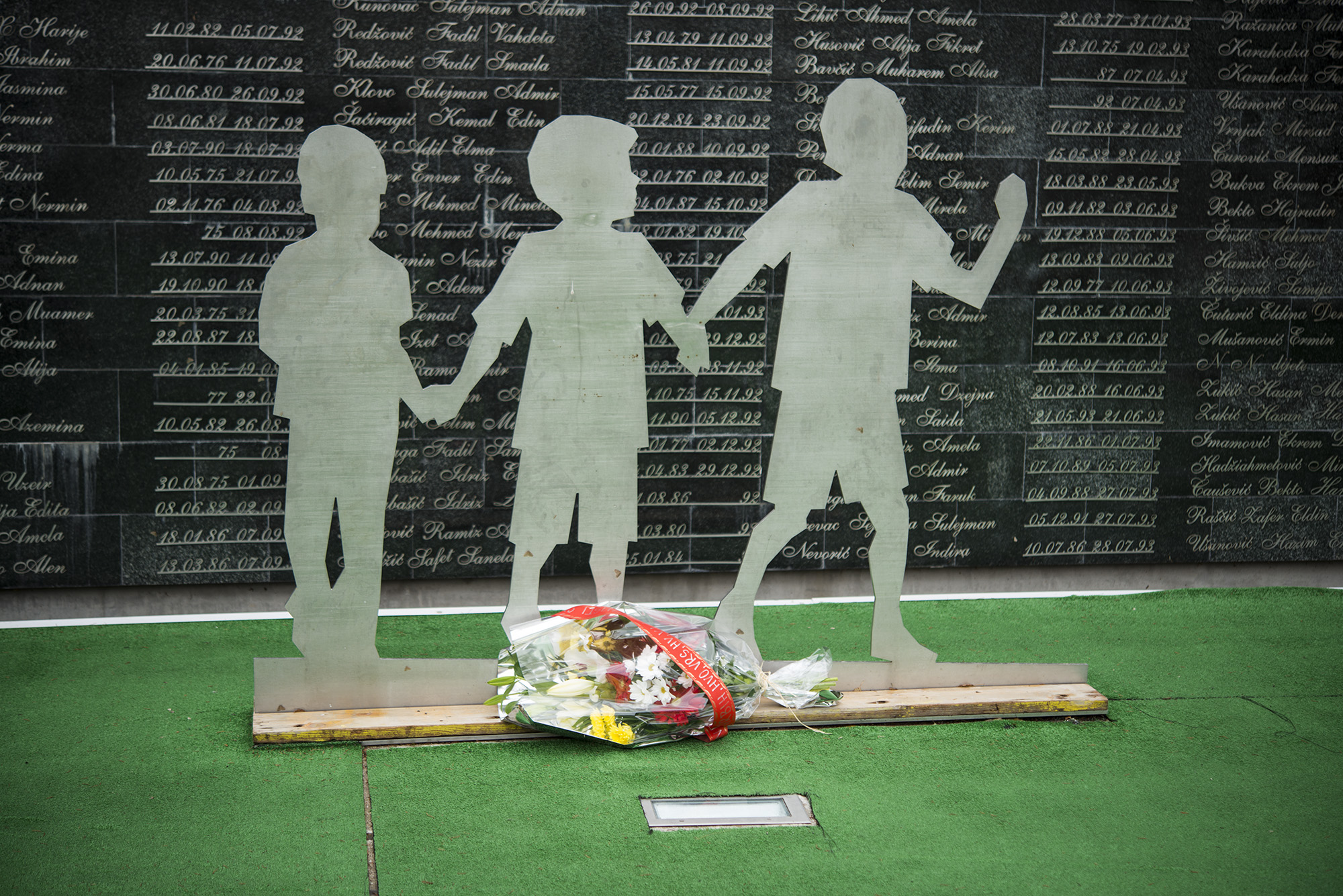In many ways, Goražde is unlike the typical place in Bosnia and Herzegovina. Located on the banks of the Drina, it has the status of the smallest of the ten cantons in the Federation of BiH, as well as being an economic miracle with an industry working for world brands in a country where half the labour force is unemployed. Goražde is becoming a destination of choice for internal migration and a significant number of families from other parts of BiH (and from both entities) are increasingly moving to Goražde. Of course, one should not idealise: wages are modest and working conditions are far from ideal, but there is progress in comparison to the rest of BiH. A visit to Goražde by war veterans from BiH, Serbia and Croatia, that took place on 8-9 November 2017 indicates that Goražde has a somewhat unique role to play in memorialising the wars of the 1990s.
Former members of the Army of BiH, VRS, HVO, HV, JNA and VJ travelled to Goražde at the invitation of veteran organisations from the town. The trip was organised by the Centre for Nonviolent Action. According to the 2013 census, Goražde (officially known as the Bosnian-Podrinje Canton) has a population of barely 20 000, with Bosniaks making up over 95% of the population. In comparison to before the war and primarily as a direct consequence of the war, the population has shrunk by 15.000. Approximately 2000 soldiers and a similar number of civilians were killed in besieged Goražde and few Serbs have returned to Goražde.

Trying those responsible for war crimes
Goražde is unique in that it does not follow the dominant (Bosniak) narrative—a victim narrative. Goražde officially calls itself the town of heroes, official institutions foster a heroic narrative, monuments to the dead of the most recent war do not display the usual religious components, and there is a more emphatically positive attitude towards the partisan heritage.
Abduselam Sijerčić Pelam, a commander during the defence of Goražde, which had the status of a protected enclave during the war, was one of the hosts to the war veterans. Pelam expressed the need for former soldiers to meet, talk to each other and work on building peace by saying that this situation has gone on long enough, especially given the increasingly frequent indications of a renewed armed conflict. There have been previous initiatives to bring together former warring parties in this part of BiH. These initiatives came from various sources, were interpreted in various ways, and were generally rejected. Pelam said that the fact that veterans have come to this part of BiH, and Goražde in particular, for the first time is significant, not only for the veterans of Goražde, but for the entire town. The hosts created a safe space with their openness, their readiness to tell their own stories and to not avoid a difficult topic such as war, and their readiness to respectfully listen to the other side. This was of particular importance to the group of war veterans, some of whom were visiting Goražde for the first time, while others had participated in the battles around the town on various sides in the conflict.
Together, the veterans laid wreaths for the fallen defenders of the city, the children who had been killed, the fallen members of MUP, those who were killed in the war hospital in Goražde and at the monument to fallen soldiers and civilians killed in Ustikolina. The hosts showed the veterans sites of conflict outside the town at Rorovi, and on their way to Ustikolina, the veterans stopped by Crkvina, where in 1992 ten Serb civilians were taken away (their remains have still not been found). The call to try those responsible for the years-long siege of the town and the killing of civilians, as well as to try those responsible for the killing of civilians in Crkvina or, for example, Jabuka, was an important step towards building peace in this local community.

A significant step forward
The visit to Goražde is a significant step forward, especially if we take into account the horrific violence that took place in the eastern parts of Bosnia and Herzegovina during the most recent war. We hope that the visit to Goražde has opened the door to this part of the region and that another visit in the near future will fling that door open completely, making it possible to organise similar visits to more local communities in these parts. The fact that the final meeting of veterans in Goražde was attended by not only the Goražde mufti Remzije ef. Pitić and a representative of the mayor of Goražde, but also the head of Rudo, Rato Rajak, adds to our confidence that such a scenario is possible. The relationship between the people of Goražde and Rudo during the war is an example of a microhistory that does not fit the everyone against everyone else narrative. Namely, in Goražde, people from Rudo are remembered as an enemy they fought against, but an enemy who would regularly inform them when they were arriving to their positions and would send signals to indicate when the shelling of the town and the killing of civilians would stop, as well as sending signals to warn the enemy of the possible danger of the arrival of a shift from some other town.
The reaction of the public and the media in Goražde to this visit is both encouraging and discouraging. The people we had an opportunity to speak to and the local media saw the visit of war veterans from the region as an exceptional event and a significant step forward in relation to the past. The local television station insisted on filming a comprehensive report on the visit of the veterans, the final meeting was attended by local representatives, the people who approached us inquired about us with surprise (There are really Serbs among you and you are doing this together?). On the one hand, this indicates that the image of the enemy in our society is very much present, that the dominant narrative defines us and them, and that the war has continued as a war for the past. But, on the other hand, this kind of approach by the media and the local community, indicates a desire to change the current state of affairs, so that (as one of the participants stated) we lend the former enemy an ear, of not necessarily a hand, so that we can finally listen to each other instead of always hearing about each other from some third party.
Hills and tall mountains rise above Goražde and neighbouring Foča, two regional centres, currently located in two entities, and together with the Drina, they make up a cultivated valley, a site of life and travel routes dating back to earliest times. The visit of war veterans to former strategic points and locations where battles were waged is a call to symbolically rise above the valley (read: our own flocks, our own narratives and perceptions, our own egos) and look beyond. The climb is not easy but it is worth it, if nothing else for the view.